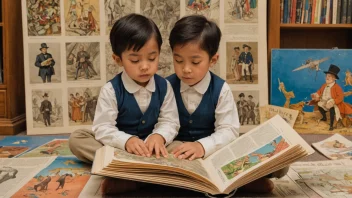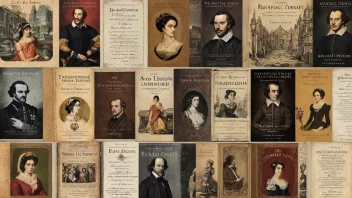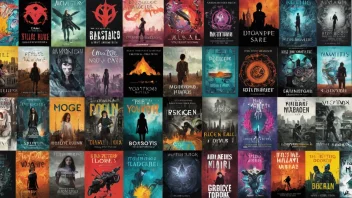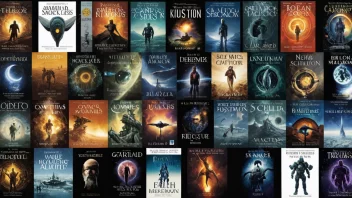Dystopian themes have become a hallmark of Young Adult (YA) literature, capturing the imagination of readers and inviting them to reflect on societal issues through an engaging narrative lens. The rise of dystopian novels in the YA genre, particularly in the early 21st century, has transformed the literary landscape, providing a unique platform for exploring themes such as government control, environmental crises, and social inequality. These narratives not only entertain but also provoke critical thinking about the world we live in.
At the heart of many dystopian YA novels is the exploration of power dynamics and the consequences of authoritarian regimes. Series like 'The Hunger Games' by Suzanne Collins and 'Divergent' by Veronica Roth depict societies where oppressive governments manipulate and control their citizens. These stories resonate with young readers, who are often grappling with their own experiences of authority and autonomy. By presenting characters who rise against these oppressive systems, these novels inspire readers to question authority and consider the implications of social control in their own lives.
Moreover, dystopian literature serves as a reflection of real-world fears and anxieties. Issues such as climate change, technological advancements, and social unrest are prevalent in many contemporary dystopian narratives. For example, 'The Water Knife' by Paolo Bacigalupi presents a future ravaged by water scarcity, prompting readers to confront the dire implications of environmental neglect. By addressing these pressing concerns through fiction, authors encourage readers to engage with critical global issues and consider their role in shaping the future.
The appeal of dystopian YA literature lies not only in its gripping plots but also in its relatable protagonists. Young readers often connect with characters who navigate complex moral dilemmas, face injustice, and strive for change. This connection fosters a sense of empowerment, as readers see themselves reflected in the struggles and triumphs of the characters. The journey of these protagonists often mirrors the challenges faced by young people today, allowing readers to explore their own values and beliefs within the context of a fictional world.
Additionally, the rise of dystopian themes in YA literature has sparked discussions about the role of youth in effecting change. Many dystopian novels feature teenage protagonists who challenge the status quo and rally their peers to take action. This emphasis on youth activism resonates with young readers, inspiring them to become engaged citizens and advocates for social justice. The portrayal of young characters as agents of change reinforces the idea that the youth have the power to influence the future and incite meaningful change in society.
In conclusion, the rise of dystopian themes in YA literature has created a captivating and thought-provoking genre that resonates deeply with readers. By exploring power dynamics, reflecting real-world anxieties, and presenting relatable protagonists, dystopian novels encourage critical thinking and inspire youth to take action. As the genre continues to evolve, it will undoubtedly remain a powerful platform for discussing important societal issues and fostering a sense of agency among young readers.
The Rise of Dystopian Themes in YA Literature
Explore the captivating rise of dystopian themes in Young Adult literature and how they resonate with today's youth.






